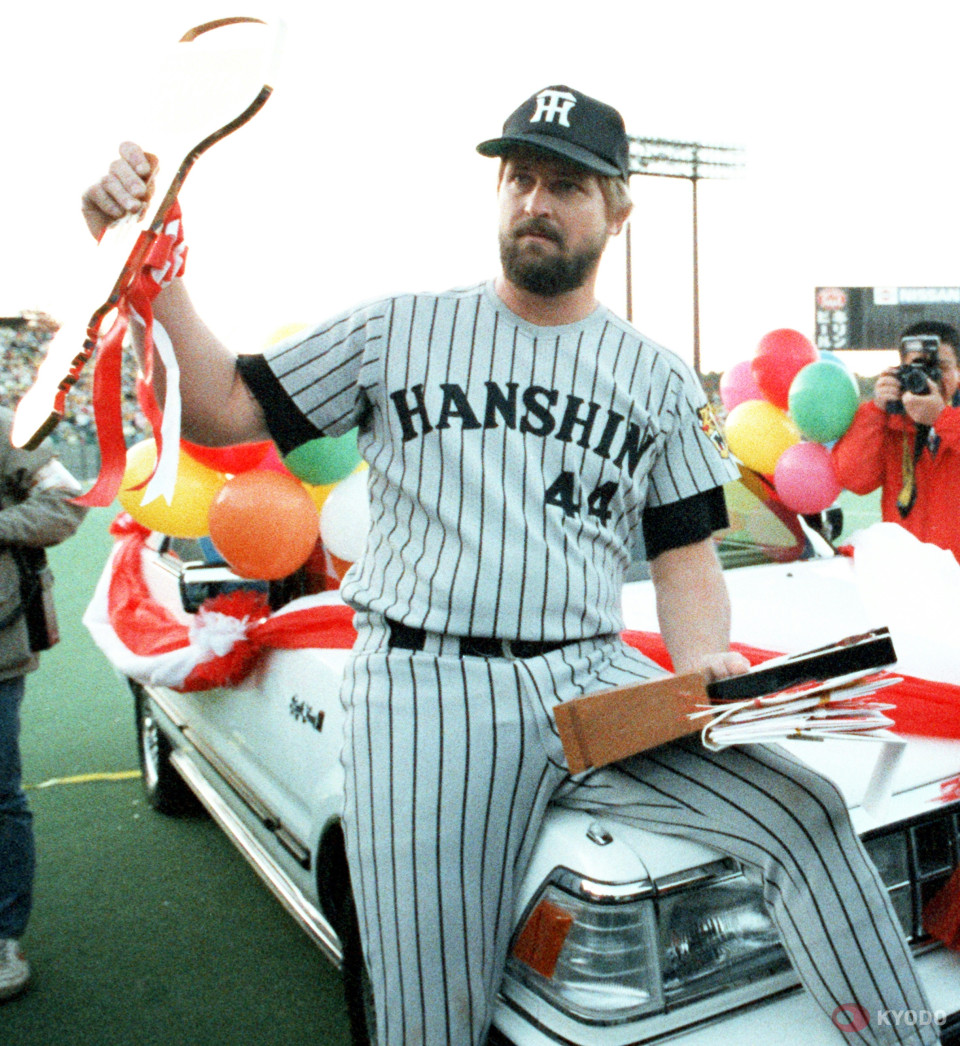Sluggers Alex Ramirez and Randy Bass have been voted into Japan's Baseball Hall of Fame, the body announced Friday, making them the first imported players to receive the rare honor since 1994.
Ramirez, who played his final season in 2013, won two Central League MVP awards and is the only import to reach the iconic 2,000-hit milestone in Japan. He was named on 81.7 percent of ballots cast in the hall's player's division.
Bass, a two-time Triple Crown-winning first baseman and the CL's MVP in 1985, when he led the Hanshin Tigers to their only Japan Series championship, hit 202 home runs in just 614 games through 1988. He was named on 78.6 percent of the expert's division ballots.

Both Ramirez, who is now a Japanese citizen, and Bass spoke of their initial struggles with a brand of baseball they did not understand and thanked those who gave them what they needed to turn the corner.
"If I hadn't started in Japan with someone like (then Swallows manager Tsutomu) Wakamatsu, I wouldn't be in the Hall of Fame today," said Ramirez, who also provided a Hall of Fame first by listing his interpreters and assistants over the years by name in his speech.
In addition to his first skipper, Bass named batting coach Teruo Namiki.
"The pitcher would throw the ball six inches outside, and the umpire would say 'That's a gaijin (foreigner) strike.' So I had to learn how to hit that ball or I was going to strike out a lot of times," Bass said in a taped interview.
"Namiki-san showed me how to hit the ball to left and center. Once it started clicking and I started hitting home runs to left and left-center, then I became a dangerous hitter."
To be selected, a candidate has to be named on 75 percent of his division's ballots. Ramirez was third in last year's player's division voting, when pitchers Shingo Takatsu and Masahiro Yamamoto were elected, while Bass led last year's expert's division ballot.
Outfielder Wally Yonamine, who later managed and coached, was the last imported player elected, while Ramirez and Bass are the first to be inducted after playing first in MLB.
The Venezuelan-born Ramirez played 135 MLB games for the Cleveland Indians and Pittsburgh Pirates before joining the Yakult Swallows, with whom he won his first pennant and Japan Series ring in 2001.

He moved to the Yomiuri Giants in 2008, when he won the first of his back-to-back CL MVPs, and helped the club to two straight pennants and the 2009 Japan Series title.
Ramirez played his final two seasons for Yokohama's DeNA BayStars, the team he would manage from 2016 to 2020, a span that included the franchise's first three postseason appearances, and its first Japan Series berth, since 1998.
In his career, Ramirez batted .301 in 1,744 games with 380 home runs and 1,272 RBIs. He led the league in batting average once, in home runs twice and RBIs four times.
Bass, too, had limited MLB exposure before joining the Tigers in 1983. Despite being an elite hitter at a young age in Triple-A, he played in just 130 MLB games split between five different teams.
His Triple Crown 1985 season launched him into the teeth of controversy. Bass moved to within one home run of Sadaharu Oh's single-season record of 55, when Giants pitchers protected their skipper's record by declining to throw him strikes.

Bass' .389 batting average in his 1986 Triple Crown season remains the highest in Japanese pro baseball history. In 1988, however, the Tigers soured on their popular star and released him after he returned to the United States when his son needed brain surgery.
In addition to Ramirez and Bass, late composer Yuji Koseki, who created the Tigers' iconic cheering song, "Rokko Oroshi," as well as serenades sung by fans of the Giants and the Chunichi Dragons, was voted in by the special committee.
Koseki's son, Masahiro, accepted the honor in his place, and commented how his father, despite composing a large number of pieces that have become associated with sports, lacked any kind of athletic ability.
"My dad had zero affinity for playing sports," Masahiro said. "I think if he had been alive today, the surprise of being inducted into the Baseball Hall of Fame might have killed him."
Related coverage:
Baseball: Roki Sasaki's perfect game ball donated to Cooperstown
Munetaka Murakami's assault on baseball record book taking Japan by storm
Baseball icon Ichiro Suzuki inducted into Mariners Hall of Fame










